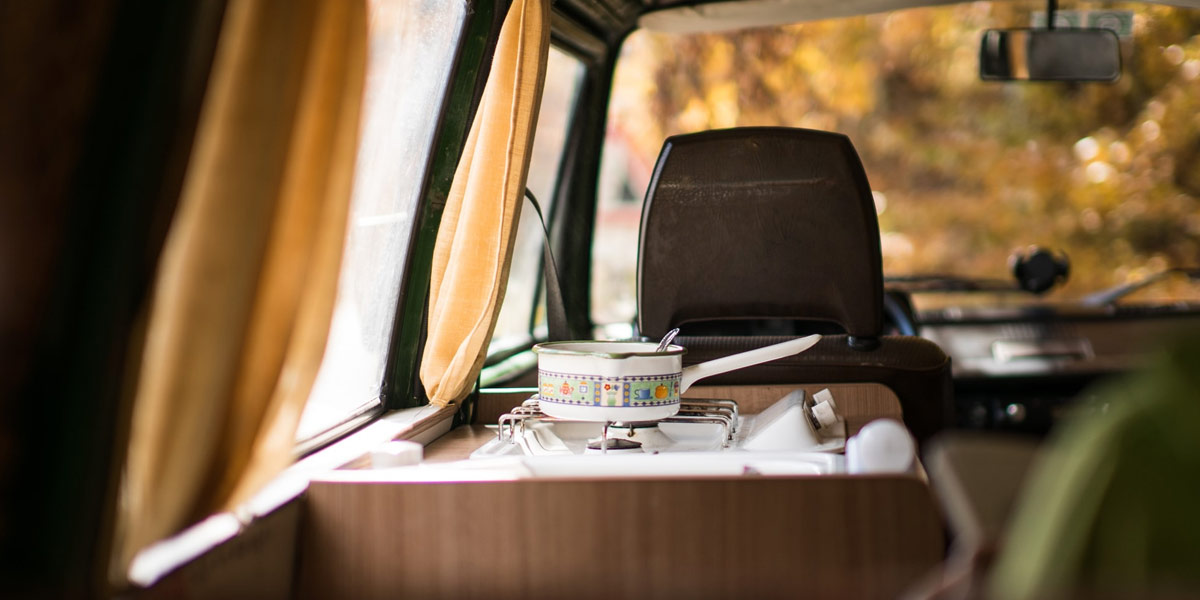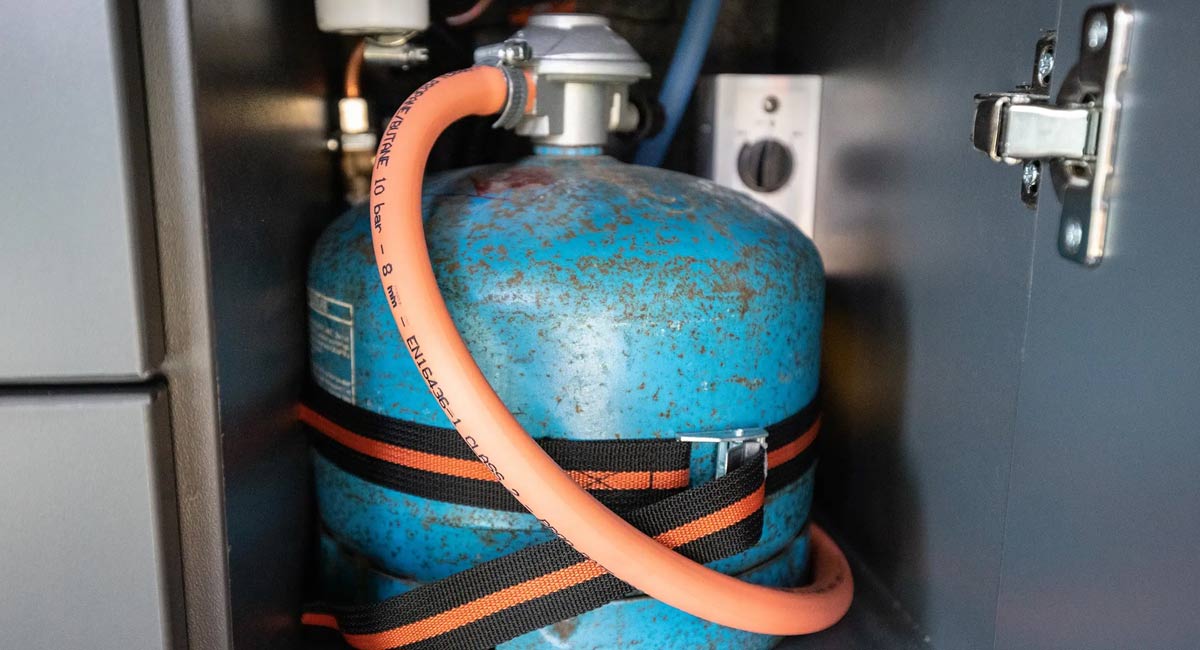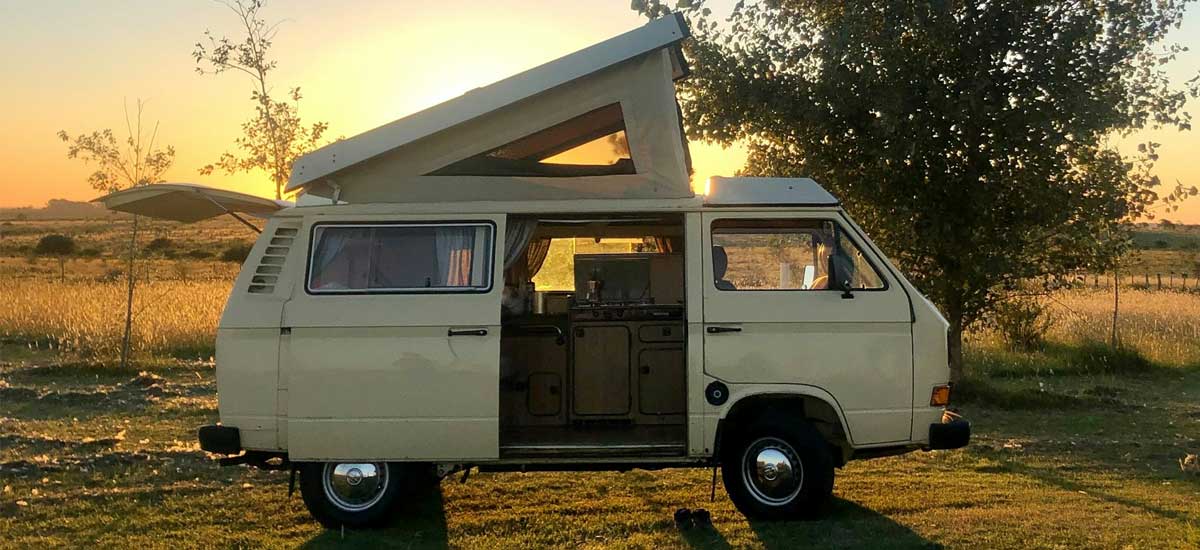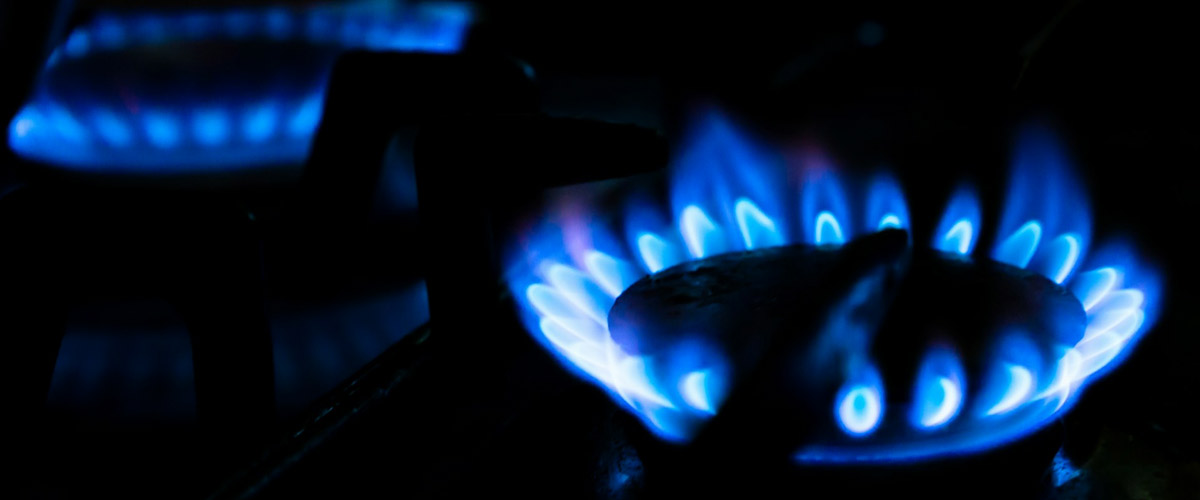Here’s a quick guide on gas safety for your converted campervan, whether you’re planning a build or you’ve just bought a camper.
We’ll cover everything from how to safely install gas-powered appliances in your camper, through to steps you can take to help keep your family and your camper safe around gas while in and around your campervan.
The risks associated with gas appliances are well known, but they’re easy to manage. We always recommend asking for expert advice from a professional who is certified by the Gas Safe Register.
Jump To:

Where can I find the rules and regulations on gas in campervans?
Campers are considered to be ‘motor caravans’ in most legal senses, so keep this in mind while you’re looking for the relevant regulations and rules relating to gas safety and anything else.
There are two main sets of laws and regulations concerning gas safety for campers, which are definitely worth reading through:
- BS EN 1949:2021
- GSIUR
BS EN 1949:2021
The snappily named BS EN 1949:2021 covers specifications for the installation of LPG (liquid petroleum gas) systems for habitation purposes in leisure accommodation vehicles and accommodation purposes in other vehicles.
In essence, this is the source of rules and regulations about how LPG is fitted in campervans and motorhomes.
You can click here for more information about BS EN 1949:2021
Gas Safety (installation and use) Regulations 1998 (GSIUR) as amended
Approved Code of Practice and guidance
The GSIUR is often referenced in other articles, so it’s a good idea to make yourself familiar with it if you’re looking to start installing gas appliances to your camper conversion.
Click here to read more about GSIUR.
Please note that this list is not exhaustive, and new regulations may have been released.

Can I install gas appliances in my camper myself?
The short answer is that yes, you’re allowed to install gas-powered appliances and devices into your campervan yourself.
The regulations state that you’d need to be competent to fit a gas system into your own camper, with competence being described by the Health and Safety Executive as the combination of training, skills, experience and knowledge that a person has, and their ability to apply them to perform a task safely. Other factors, such as attitude and physical ability, can also affect someone’s competence.
You can read the page on competence from the Health and Safety Executive here.
This guidance only applies if you’ll be using your campervan yourself, and does not apply if you’re making your camper available for hire.
A note on hiring your camper
Please be aware that if you rent out or hire out your campervan or motorhome, then you’ll be required to have your gas appliances and system installed by a competent, qualified Gas Safe engineer, and to have the appropriate certificate to prove that this work has been done.
Can having gas appliances affect my vehicle insurance?
Your insurance policy is designed to protect you in the event of an accident or issue, and requires you to make it clear which gas appliances you’ve got, how they’re fitted, and where.
Most camper or motorhome insurance policies require you to maintain your vehicle properly and keep it in a roadworthy and safe condition.
Neglecting gas safety checks, failing to follow applicable laws, or being unable to provide proof that you have stayed up to date on maintaining your gas system could invalidate your insurance policy, meaning you may not be covered in the event of a claim.
It’s important to check what’s required of you from your insurer, to be certain that you’re doing what’s needed and are properly covered.
In the unfortunate event of a gas-related incident, your insurer may ask for proof of gas safety checks and compliance with relevant laws. Having a well-documented maintenance record not only ensures your safety but also protects your right to claim under your insurance policy.
Gas-related incidents can cause significant damage to other people or property. Without appropriate safety measures in place, you risk facing liability issues, which can be very costly and complicated. An up-to-date insurance policy and compliance with gas safety laws can reduce this risk.
We aren’t sharing this information to scare you out of fitting gas appliances to your camper – they’re extremely common in campervans and motorhomes across the country – but to make you aware of the extra work (and possibly costs) involved with installing and maintaining one.

Useful guidance for campervan gas safety
We’ve put together this quick list of tips on gas safety in campervans, to help keep you and your family safe while you’re off adventuring.
Fit a gas alarm in your camper
Ensure that you’ve got a gas alarm which will alert you if your gas system has developed a leak.
You may be likely to notice a leak of propane or butane because of the distinctive smell, but it’s not a guarantee. Gas alarms are also invaluable for alerting you of a carbon monoxide (CO) leak, which can be incredibly dangerous.
Regularly check your campervan’s gas alarm
While gas alarms are a must-have for any camper using gas appliances, it’s just as important to regularly check them to ensure they’re working.
A gas alarm generally has a shelf life of around five to ten years, and it’s essential you test yours before you set off on a trip and to replace it immediately if it stops working.
Install firefighting kit in your camper
If you’re planning to convert a van into a camper, then make sure you set aside a sensible space for accessible firefighting equipment like extinguishers and fire blankets, so they’re within easy reach if a fire breaks out.
This is especially important if your camper will be fitted with gas appliances, and you’ll need to regularly check that your fire extinguishers are still in date to avoid them letting you down when you need them most.
Use a gas locker for safe storage
When you’re building your campervan, or fitting a gas system into an existing camper, it’s vital that you locate your gas bottles in a secure, ventilated gas locker.
This locker should be located somewhere out of the way, and be fitted over a ventilation hole which vents to the outside of your vehicle. This will ensure that any gasses which do leak out will be vented to the outside air rather than building up inside your campervan.
Gas lockers are readily available in different sizes, and can be bought from our colleagues at Just Kampers. You’ll even get a 10% discount on orders from Just Kampers while you’re insured with Just Kampers Insurance, so you can kit out your camper for less!
Know your gas limits
You’ll be limited to carrying two 10-litre bottles of gas in your camper, unless you’ve got a rotating vent on your vehicle’s rooftop.
It’s also advisable to put a sticker on your camper to show that you’ve got gas on board.
This isn’t a requirement unless you’re using your camper for work, but it’s still generally a good idea, and you can get magnetic versions that you can easily pop on and take off so it doesn’t ruin the look of your campervan while you’re parked up!
Watch this helpful video: How to fit gas and water to your campervan conversion.

A quick summary
Gas safety in your motorhome is non-negotiable for ensuring your health, well-being, and the security of your investment. By adhering to the gas safety regulations, you not only protect yourself and others, but also maintain the validity of your insurance policy. Regular checks, documentation, and the use of appropriate safety equipment will give you peace of mind as you hit the road for new adventures.
